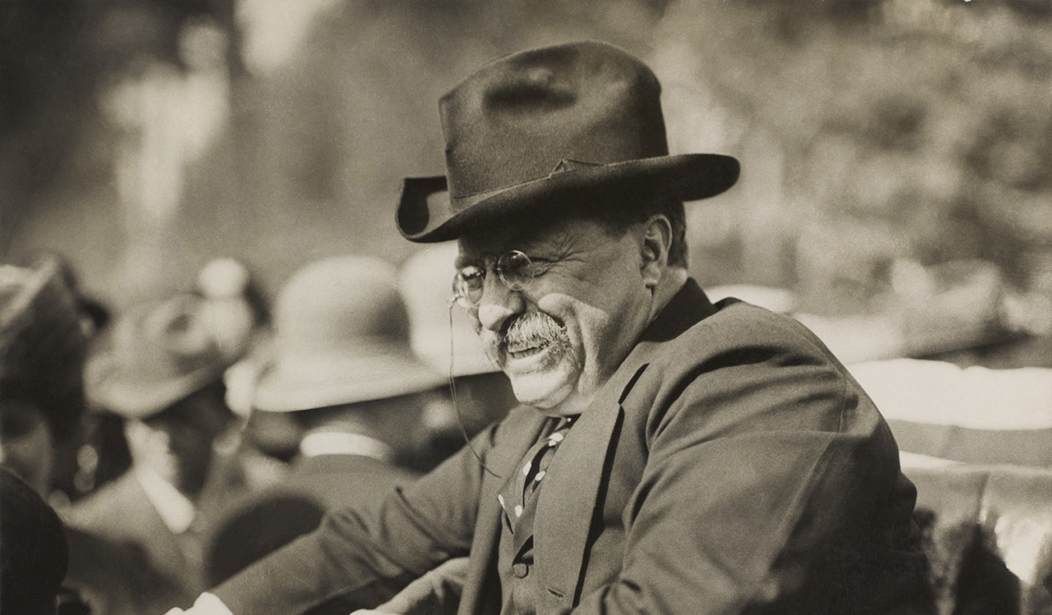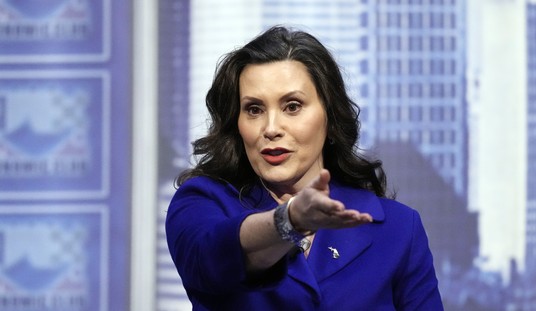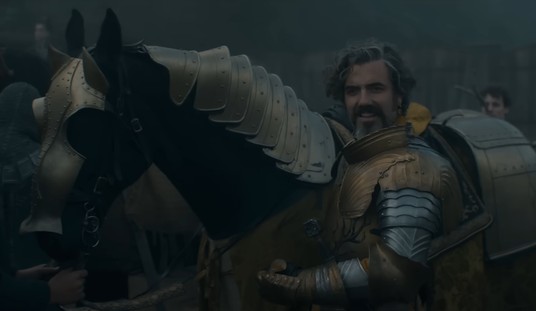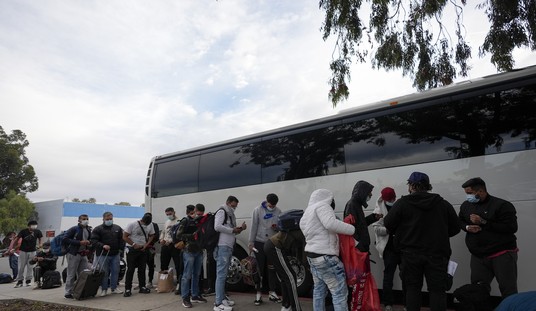Appearances Can Be Deceiving
See this old photo of the man above? Looks like a cheerful fellow but nothing out of the ordinary, just a middle-aged man, typical of the early 20th century, reasonably prosperous, of no particular import. That couldn’t be further from the truth. This is, of course, Theodore Roosevelt, rancher, a colonel of Volunteers in the US Army, assistant secretary of the Navy, governor of New York, president of the New York City Board of Police Commissioners, vice president, and then President of the United States, a hurricane who walked like a man, and a major-league badass no matter what you think of his politics.
His Origin
Theodore Roosevelt was born in New York City on October 27, 1858. His father, Theodore Roosevelt Senior, was a businessman, primarily involved in a plate glass importing business, Roosevelt & Son. His mother, Martha Bulloch Roosevelt, was a socialite and a true Southern belle, having been raised in antebellum Georgia--and reportedly, one of Margaret Mitchell’s inspirations for the character of Scarlett O’Hara.
The young Roosevelt was a weak, sickly child. He suffered from severe asthma attacks, often at night, which terrified him with the sensation of being suffocated. Then, in 1869, his family vacationed in Europe. While hiking in the Alps, young Theodore discovered that, as he exerted himself, he gained strength, eventually keeping pace with his father. This was the genesis of his “Strenuous Life” recipe for health. At this point, young Theodore physically tore the asthma from his body, pinned it to the ground, and choked it to death, thus ending the ‘weak and sickly’ phase of his life and becoming entirely something else.
His Adventurous Career
Being the product of homeschooling, not unusual among wealthy families of that era, didn’t hinder young Roosevelt from pursuing a varied career. He proved to have a talent for geography and history, which would serve him well later in life; he did well in the sciences, particularly biology, which kindled in young Roosevelt an appreciation for the natural world that he would retain for the rest of his days. His educational preparation allowed him into Harvard, where he was on rowing and boxing teams, presumably kicking ass at that latter. Roosevelt also was an editor of The Harvard Advocate, joined the Delta Kappa Epsilon fraternity, and the Porcellian Club, whatever that was. With all this, Roosevelt still graduated in 1880, 22nd of 177 in his class.
See Related: The Pocket Watch Owned by Theodore Roosevelt, Stolen in 1987, Comes Home
Theodore Roosevelt the elder had died in 1878, leaving young Theodore with an impressive inheritance of $65,000 – almost $2 million in 2023 dollars. This would have left Theodore the Younger with enough resources to live a life of leisure, but leisure was not in his nature. He entered Columbia Law School but found that the law was indeed an ass, and neglected his studies to write his first book, "The Naval War of 1812," published in 1882. It was in this interval that Roosevelt married his first wife, Alice Hathaway Lee. Four years later, Alice presented Roosevelt with a daughter, Alice Lee Roosevelt, then the young mother died two days later of kidney failure. Roosevelt was struck so hard by the loss that he was, for a time, unable to care for his infant daughter, leaving her in the care of his sister, and never spoke or wrote of his first wife again.
But it didn’t take him long to overcome his grief and return to his accustomed badassery.
In 1885, having found serving in the New York State Assembly boring, young Roosevelt, then 27 years of age, abandoned his comfortable New York lifestyle and proceeded hither to the Dakota Territory, where he founded the Elkhorn Ranch. Roosevelt quickly became adept at the skills necessary for cattle ranching in the West: Riding, roping, shooting, hunting, and generally impressing the older, more experienced cowboys he hired, some of whom would later serve with Roosevelt in a more uniform capacity. He wrote later of his time in Dakota that he admired cattlemen, noting that they had "few of the emasculated, milk-and-water moralities admired by the pseudo-philanthropists; but he does possess, to a very high degree, the stern, manly qualities that are invaluable to a nation."
As though running a ranch and transforming himself into a ridin’, ropin’, shootin’ man of action wasn’t enough, during this interval, Roosevelt also wrote three books on hunting and ranch life, helped form the Little Missouri Stockmen’s Association and the Boone and Crockett Club, along with serving as a Deputy Sheriff of Billings County.
Unfortunately, not even young Theodore Roosevelt could command the weather. He was wiped out in the winter of 1886-1887 and returned to New York, where he married his second wife, Edith Kermit Carow. In addition to raising Roosevelts' daughter Alice, the couple would have five children: Theodore Roosevelt III (1887), who became a tough guy in his own right, serving in the Army during the Great War and winning the Medal of Honor for directing troops at Utah Beach on June 6th, 1944. Ted was followed by Kermit (1889), Ethel (1891) Archibald (1894), and Quentin (1897).
While engaged in the production of offspring with Mrs. Roosevelt, Theodore was also adding to his list of offices, serving on the Civil Service Commission, as New York City Police commissioner, and finally as assistant secretary of the Navy (a post that would later be held by his son Ted). It was in this latter role that Theodore Roosevelt would cement his reputation as a badass, following the explosion of the armored cruiser Maine in Havana harbor in 1898.
His One-Man War
When President William McKinley asked for and received a declaration of war against Spain, Theodore Roosevelt, against his wife’s express wishes, resigned his post in the Navy. With Army Colonel Leonard Wood, he formed the First U.S. Volunteer Cavalry Regiment, which would later famously be named ‘The Rough Riders.’
Roosevelt recruited quite a mixed bag for the Rough Riders: Ivy League athletes, cowboys, Indians, prospectors, frontier lawmen, and former soldiers – anyone Roosevelt felt was tough enough and could ride and shoot straight. After training, the regiment deployed to Cuba.
Roosevelt was originally commissioned as a Lieutenant Colonel and made second-in-command. Eventually, Colonel Wood was promoted to command of the brigade, whereupon Roosevelt was promoted to Colonel – a title he would prefer to the end of his days – and given command of the regiment. After a minor scrap with the Spaniard at Las Guasimas, the Rough Riders gained their fame on July 1, 1898, when they were part of the American assault on San Juan Heights.
That morning Roosevelt, without orders, decided to assault Kettle Hill. Despite the Rough Riders being a cavalry regiment, Roosevelt was the only man on horseback that day, riding back and forth between firing positions, keeping the men moving, and shouting encouragement. Near the crest of the hill, his horse became entangled in barbed wire, and so the Colonel walked the rest of the way to the summit with his men. One American sergeant later reportedly commented on Roosevelt that “…wherever the bullets were thickest, there was the Colonel, his revolver in one hand, always yelling ‘follow me, boys!’ and leading the charge.” Roosevelt thereafter referred to the charge on Kettle Hill as "my crowded hour," perhaps referencing Sir Walter Scott: “One crowded hour of glorious life is worth an age without a name.” It is nevertheless important to note that this crowded hour cost 400 men killed and almost a thousand wounded.
Colonel Roosevelt was recommended for the Medal of Honor for that day, but the Army suppressed the award due to Roosevelt’s unfortunate tendency toward braggadocio; he was however posthumously awarded the Medal in 2001. Theodore Roosevelt thus became the only American president to be awarded the Medal of Honor, although it happened years after his death. Courage can be passed on, as his son Ted was also awarded the Medal of Honor for his actions at Utah Beach in 1944.
His Presidency
After the war Roosevelt was elected governor of New York, a position he held for two years before winning election in the 1900 presidential contest as vice president for William McKinley. He ascended to the presidency in September of 1901 following the assassination of President McKinley by an anarchist named Leon Czolgosz. Roosevelt was the 26th man to hold the office of president.
Once seizing the reins of power, President Roosevelt made ample use of them. Whereas his three predecessors had only filed 18 antitrust violations of the Sherman Antitrust Act among them, Roosevelt filed 44. He oversaw the creation of the extra-constitutional agency United States Department of Commerce and Labor, including the Bureau of Corporations that would later become the Federal Trade Commission. The Department of Commerce and Labor would eventually give way to two agencies, the Department of Commerce and the Department of Labor, which are still not authorized in the Constitution but somehow manage to exist anyway.
Roosevelt also established the US Forest Service and signed a law creating the first national parks. He made ample use of executive orders to set aside forest reserves, prohibiting the development of those lands, until an amendment to an agricultural appropriations bill passed by Congress forbade him from doing so; even so, he signed 21 additional reserves into being after Congress passed the bill and before signing it into law.
In foreign policy, Roosevelt adhered to the famous principle of the big stick. He sent the Great White Fleet on a world tour, put down an insurrection in the Philippines (the one given apocryphal credit for the US Army’s adoption of the 1911 Colt .45 caliber sidearm), and negotiated an end to the Russo-Japanese War, which resulted in his being presented with the Nobel Peace Prize. German and British interference in South and Central America led Roosevelt to issue an amendment to the Monroe Doctrine, which stated:
“Chronic wrongdoing or an impotence which results in a general loosening of the ties of civilized society, may in America, as elsewhere, ultimately require intervention by some civilized nation, and in the Western Hemisphere, the adherence of the United States to the Monroe doctrine may force the United States, however reluctantly, in flagrant cases of such wrongdoing or impotence, to the exercise of an international police power."
In between all this, he negotiated with (read that as “intimidated”) the Columbian government into surrendering to the U.S. what would become the Panama Canal Zone, and to push through the construction of that work of engineering, which would forever change the face of international shipping.
It was during that last project was ongoing that Roosevelt became the first U.S. president to leave the continental United States while in office, when he embarked on a tour of the Canal Zone, with a side jaunt to Puerto Rico.
In 1904, Roosevelt handily won the presidential election in his own right.
Roosevelt, unfortunately, moved to the left in his second term. He called for new policies including an income tax, and an inheritance tax, and repeatedly denounced what he called “predatory wealth.” Maybe because of this, as his second term drew to a close, he lost the support of enough of the Republican base that he did not seek a third term, allowing Vice President William Howard Taft, of the impressive heft, to run for and win the presidency in 1908.
See Related: Elon Musk Compares Trump to 'Tough' Teddy Roosevelt Following Assassination Attempt, Fully Endorses Him
His Golden Years
Retirement did not sit easily on Theodore Roosevelt.
Shortly after handing over the White House to William Howard Taft, Roosevelt went hither to Africa as part of the Smithsonian-Roosevelt Africa Expedition, his purpose being to gather zoological specimens for several museums. He immortalized this trip in his book,"African Game Trails"
The safari covered a large part of the continent, and killed or trapped over 11,000 animals, ranging from insects to elephants, all of which were sent to the Smithsonian Institution and the American Museum of Natural History in New York for display. After the safari, Roosevelt proceeded to Europe, there to jaw with (among others) Kaiser Wilhelm II, King George V, and Emperor Franz Joseph of Austria-Hungary. He capped this in 1910 by becoming the first U.S. president to fly in an airplane.
By 1912, Roosevelt had grown dismayed that Taft had not proved to be an ideological clone of Roosevelt, and so challenged him for the Presidency. When Taft won the Republican nomination, Roosevelt formed his own “Progressive” party and ran as a… fourth party candidate against Taft, Democrat Woodrow Wilson and Socialist Eugene Debs. This led to the disastrous Wilson being elected as the 28th President.
But it was during this campaign that Roosevelt was offered one more opportunity to demonstrate his personal fortitude. In October of 1912 in Milwaukee, Wisconsin, just before a scheduled speech, Roosevelt was shot from seven feet away by a lunatic named John Schrank, who claimed the ghost of William McKinley commanded him to do so. The bullet, partly deflected by a printed copy of Roosevelt's speech and a steel eyeglass case, entered Roosevelt’s chest. After ordering police to take custody of Schrank, Roosevelt conducted a calm self-assessment and noted that he was bleeding from the chest but not from the nose or mouth. Correctly assuming he was not mortally wounded, he went on to deliver remarks for 90 minutes, bleeding the entire time. He prefaced his remarks by noting "Ladies and gentlemen, I don't know whether you fully understand that I have just been shot, but it takes more than that to kill a Bull Moose."
After failing to win the election, Roosevelt went on to attack Wilson’s administration at every turn and in so doing may have helped the Republicans take control of Congress in 1918. When the Great War erupted, Roosevelt supported American involvement and offered to re-form the Rough Riders for the occasion, which offer was declined by Wilson.
But as 1918 rolled into 1919, Roosevelt's health deteriorated, the result of several tropical diseases caught in Africa and a later trip to the Amazon. The hurricane who walked like a man suffered breathing trouble on the night of January 5th, 1919, and after asking his family servant to “Please put out that light, James,” Theodore Roosevelt passed away.
His son Archibald telegraphed friends and supporters with the message, “The old lion is dead.” Even Woodrow Wilson’s vice president, Thomas Marshall, commented that, “Death had to take Theodore Roosevelt sleeping, for if he had been awake, there would have been a fight.”
In Summary
It’s hard to reduce a man like Theodore Roosevelt to a few pages.
I’m sure I left out a lot of interesting information. Many books have been written about Colonel Roosevelt; I’ve read a bunch of them, he being one of my personal heroes. Anyone interested in learning more about his influence on American history would be well advised to do likewise.
I feel the need to point out that I’m not altogether a fan of Theodore Roosevelt’s political views. He was certainly no libertarian, favoring government regulation of business and making much of his reputation as a “trust buster.” But differing with those views does not mean I can't recognize the greatness of the man overall. He had courage, fortitude, intelligence, and grit, attributes unknown among politicians in today’s world. We could use a few more like him, as examples if nothing else.














